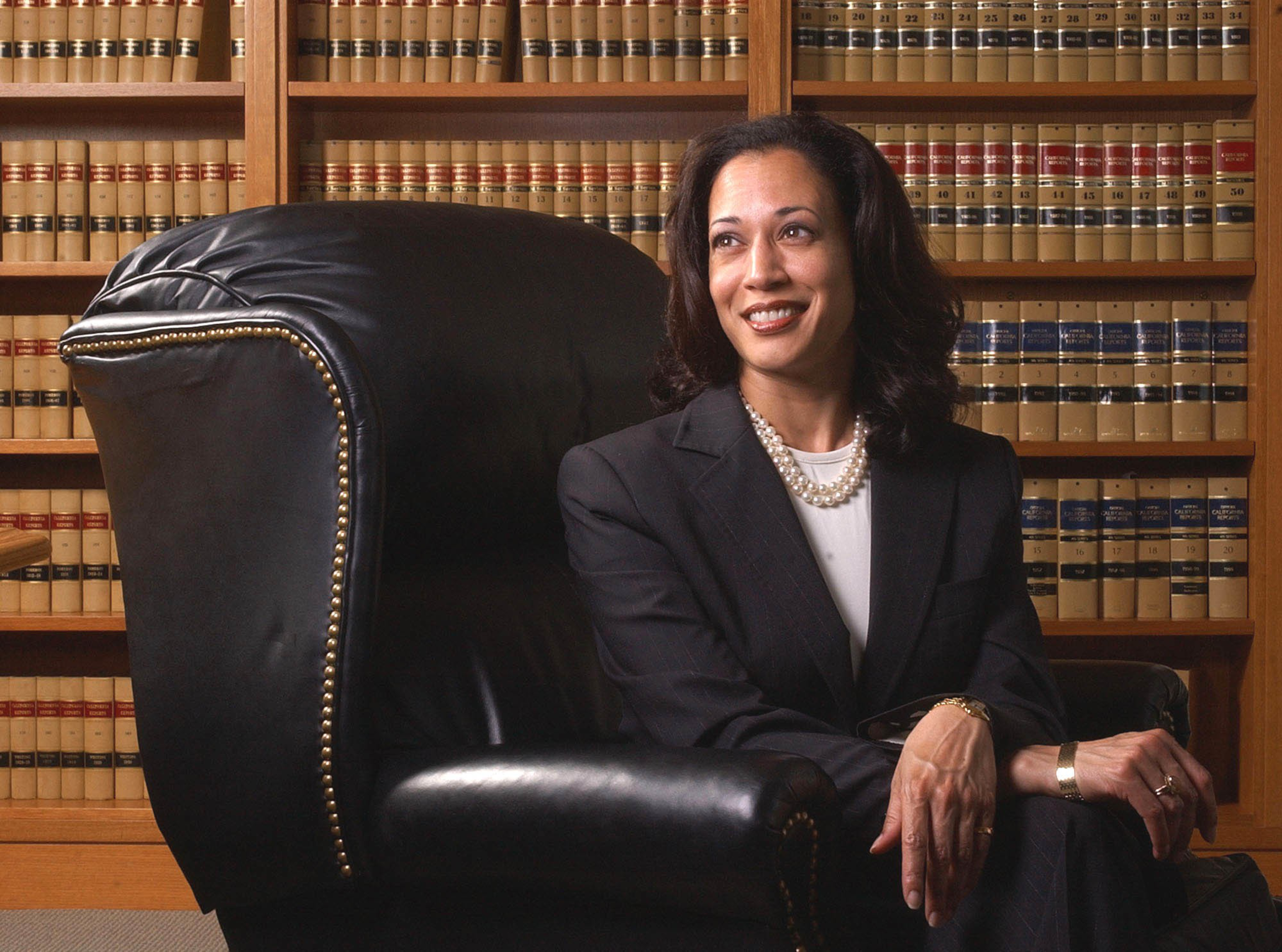When Adlah Chisti first saw Kamala Harris on TV 20 years ago, she felt a jolt of recognition: Here was a politician whose Indian first name and skin color reminded her of her own.
The daughter of Indian Muslim immigrants was a college student with a passion for politics, and she didn’t see many South Asian faces among San Francisco’s elected offices. Harris, also the daughter of an Indian immigrant, was a rising star serving as the city’s district attorney.
“She was the only person I could look up to growing up in San Francisco,” Chisti told The Standard. “Finally, we had that representation.”
Chisti went to law school with a dream of becoming a prosecutor and eventually worked for Harris’ 2016 Senate campaign.
At 40, Chisti is energized by Harris’ run to become the first U.S. president of South Asian heritage. She too wants to make history: as San Francisco’s first supervisor of South Asian ancestry.
Few South Asians have been elected to offices in San Francisco, where Chinese Americans and East Asians have long dominated political representation.
However, the city’s South Asian population has almost quadrupled over the last 20 years — driven in part by the booming tech industry. The demographic shift has pushed a new generation of South Asian political activists, many of whom are launching campaigns for local offices.

Bilal Mahmood, an entrepreneur and son of Pakistani immigrants, also seeks to become the first South Asian supervisor. Chisti is running to replace outgoing Supervisor Ahsha Safaí in District 11, while Mahmood is running against Supervisor Dean Preston in District 5.
Two South Asians appear to be the front-runners in the race for the school board: Supryia Ray and Parag Gupta, the latter of whom in March won a seat on the Democratic County Central Committee. Meanwhile, Chisti’s younger sister Aliya Chisti is a City College of San Francisco board trustee running for reelection.
Other influential South Asian activists are making waves outside of elected office, including Kanishka Cheng, who founded the moderate political group TogetherSF, and Sachin Agarwal, co-founder of GrowSF.
“There are more South Asians living in San Francisco and in tech than there used to be,” Cheng, a Sri Lankan refugee, told The Standard. “They can only run if there is a base of votes for them, because identity politics is still at play.”
Population boom
The Bay Area’s large Indian and South Asian communities are concentrated in the South Bay and East Bay.Santa Clara and Alameda counties have Indian populations exceeding 10% (opens in new tab), and there are many successful Indian tech executives (opens in new tab) in Silicon Valley.
Nationally, Indian Americans surpassed Chinese Americans last year as the largest Asian ethnic group (opens in new tab). There’s a record six South Asian members of Congress (opens in new tab), including the South Bay’s Ro Khanna, elected in 2016. Harris was the first Indian American elected to the Senate, in 2017, and the vice presidency, in 2020.
San Francisco’s Indian American community is catching up.
There were only about 5,000 Indian Americans (opens in new tab) in San Francisco around 2000. The number doubled by 2010 and over the past decade reached 22,000, (opens in new tab) about 3% of the city’s residents. The Pakistani population is about 1,000; the Sri Lankan and Bangladeshi populations are believed to be significantly smaller.
Mano Raju, San Francisco’s public defender, said the growing population has empowered more South Asians to seek opportunities in politics.

Raju is a stalwart progressive who said his passion for public service has deep roots in his American and Indian background.
“I come to this work with the connection of the civil rights [movement in the U.S.] and the anti-colonial movements in South Asia,” Raju said. “For me, there’s a lot of solidarity.”
Siva Raj, an Indian immigrant with a healthcare and tech background, launched the historic recall of three school board members in 2022. He also ties his political activism to India’s independent movements and democracy system.
“Indians who grew up there or who had that upbringing are not afraid to engage in the democratic process,” Raj said.
Techies in politics
Several high-profile South Asians with tech backgrounds have gravitated toward San Francisco politics.
Mahmood, an entrepreneur and political moderate, is one. He and another activist, Vikrum Aiyer — who has worked for tech firms in policy roles — were on the short list for a Board of Supervisors appointment in 2022. Agarwal, meanwhile, previously worked for Lyft and Twitter.
Mahmood’s parents emigrated from Pakistan. He grew up in student housing at Stanford, where his father studied engineering, and frequently visited the Tenderloin, a hub for South Asian immigrants and home to Shalimar Restaurant, one of the city’s first South Asian eateries. (opens in new tab)

He’s running to represent the district on the Board of Supervisors and, if elected, plans to introduce legislation to set up a South Asian cultural district.
“The brightest moment of this tough campaign was connecting with the community,” Mahmood said. “One kid came to me during Ramadan and told me, ‘Oh, I know you. I asked my mom to vote for you.'”
AJ Gandhi, a board member at the new group Association for the Advancement of Asians, noted that many Indian Americans have been successful in the private sector, especially tech, and he’s glad to see that the trend has “trickled into” the public sector.
“It’s great that we’re seeing folks from South Asian backgrounds getting involved,” Gandhi said.
He suggested that the Asian American community should not just follow ethnic voting patterns but focus on policy and pragmatic leadership roles. “People of a certain ethnic group will vote for people in a certain ethnic group? We’ve moved on beyond that.”
